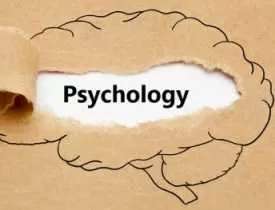Description
Course Name: Advanced Diploma in Counselling Psychology
Course Id: ADCP/Q1001.
Education Qualification: 12th Pass.
Duration: 370 Hrs.
How You will Get Diploma Certificate:
Step 1- Select your Course for Certification.
Step 2- Click on Enroll Now.
Step 3- Proceed to Enroll Now.
Step 4- Fill Your Billing Details and Proceed to Pay.
Step 5- You Will be Redirected to Payment Gateway, Pay Course and Exam Fee by Following Options.
Card(Debit/Credit), Wallet, Paytm, Net banking, UPI and Google pay.
Step 6- After Payment You will receive Study Material on your email id.
Step 7- After Completion of Course Study give Online Examination.
Step 8- After Online Examination you will get Diploma Certificate soft copy(Scan Copy) and Hard Copy(Original With Seal and Sign).
Step 9- After Certification you will receive Prospect Job Opportunities as per your Interest Area.
Online Examination Detail:
- Duration- 120 minutes.
- No. of Questions- 60. (Multiple Choice Questions).
- 10 Questions from each module, each carry 10 marks.
- Maximum Marks- 600, Passing Marks- 40%.
- There is no negative marking in this module.
| How Students will be Graded: | ||
| S.No. | Marks | Grade |
| 1 | 91-100 | O (Outstanding) |
| 2 | 81-90 | A (Excellent) |
| 3 | 71-80 | A (Very Good) |
| 4 | 61-70 | B (Good) |
| 5 | 51-60 | C (Average) |
| 6 | 41-50 | P (Pass) |
| 7 | 0-40 | F (Fail) |
Benefits of Certification:
- Government Authorized Assessment Agency Certification.
- Certificate Valid for Lifetime.
- Lifetime Verification of Certificate.
- Free Job Assistance as per your Interest Area.
Syllabus
Advanced diploma in counselling psychology
Foundations of Counseling Psychology
Psychophysical approach Information processing approach Ecological Approach Contemporary Cognitive Psychology, Theories of Attention and current developments: Broadbent‟s filter theory, Triesman‟s attenuation theory, automatic and controlled processing, switching attention. Perceptual learning and development Perception of shape, space and movement Implicit perception and sensory integration theory Cognitive – Attentional Theory: Information Processor, Cognitive Timer, Memory & Forgetting, Thinking and Language Formatio, Learning and Language Disorder.
Theories & Systems of Psychology
Recognize the manner in which the history of Psychology is typically presented to undergraduates, as distinct schools of thought that replace each other sequentially, and consider alternatives, Explore the nature of scientific progress, as discussed by philosophers, historians and sociologists of science, Interrogate assumptions about the methods that define psychological research practice, Debate the nature and importance of contexts (historical, social, geographical, moral) in which psychologists functioned.
Philosophy of Clinical Psychology
Psychosocial Foundation of Behavior and Psychopathology, Statistics and Research Methodology, Psychiatry, Biological Foundations of Behavior, Psychotherapy and Counseling, Behavioral Medicine, Mental health care – past and present; stigma and attitude towards mental illness; concept of mental health and illness; perspectives – psychodynamic, behavioral,Epidemiology: Epidemiological studies in Indian context; socio-cultural correlates of mental illness, mental health, psychological well-being and quality of life, DisabilityPolicies and Acts.
Counselling Skills & Techniques
Introduction, philosophy, and rationale of counseling Rowley, Definition of counseling, Goals and purposes, Philosophical bases, Ethical standards and legal issues, Principles of counseling and helping, Role and identity of the counselor, Professional identity, Change agent, Individual counseling, Group counseling, Consultation skills, Crisis counseling, Outside referral, Settings of counseling, School, Mental health agency, Substance abuse, Correctional facility, Higher education, Basic counseling skills, Attending skills, Attentive listening, Inquiry skills, Observation skills, Clarifying skills, Paraphrasing, reflection, and summarizing, Confrontation skills, Self-disclosure, Immediacy, Silence, Empathy, Goal setting,Feedback, Interview Process, Physical environment, Therapeutic relationship.
Counselling in Special Cases
Drug, Direction, Precautions, Monitoring, Anger management counselling, Stress management counselling, Grief counselling, Counselling for caregivers, stress and physical strains, helplessness and guilt/inferiority, support from family and community, awareness about the needs, knowledge, availability, & accessibility of services.
Positive Psychology
Need for a science of human strengths and virtues, Deconstruction of illness ideology and inclusion of human strengths, Positive Psychology: Assumptions, Goals and Definitions, Three pillars of positive psychology, Subjective well-being, Positive emotions, The flow experience, Optimism and Hope, Self efficacy, Creativity, Wisdom, Empathy and altruism, Self efficacy, Creativity, Wisdom, Empathy and altruism.








Reviews
There are no reviews yet.